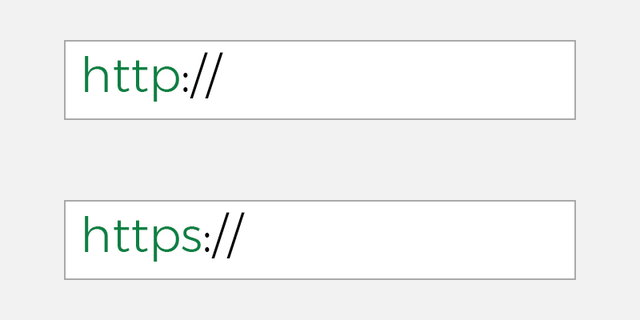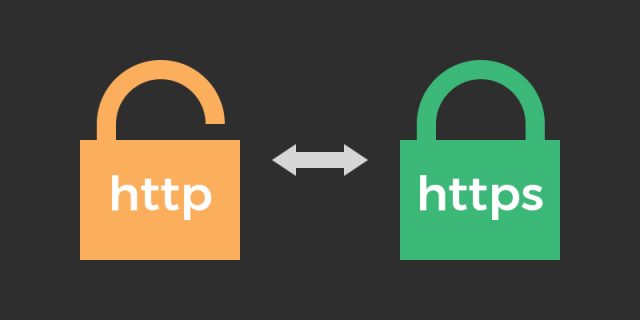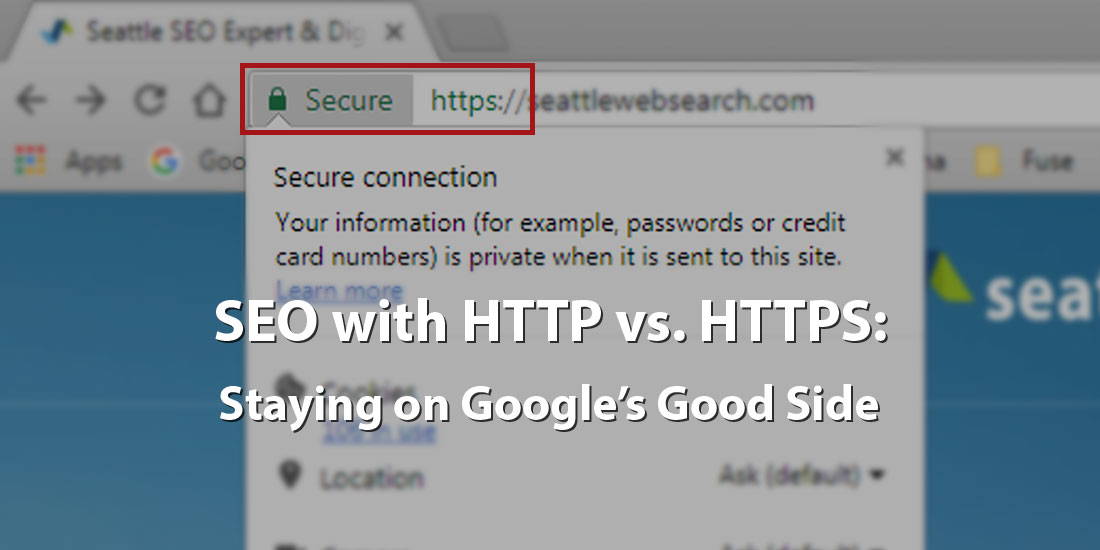In the last couple of years, Google has made it enticing to switch your website over to HTTPS. If you do it, your site will receive a slight boost to ranking. And if Google tells you to make a switch, it would be wise to follow through.
However, despite many companies following this mentality, one still needs to know, the difference between HTTP and HTTPS, if completing the switch works for your company, and what is needed to make the switch.
To begin, it is important to ask multiple questions: Why would Google prefer HTTPS in terms of SEO rankings? How does HTTPS benefit from SEO? Finally, is it important to remain cautious from some concerns of making the switch to SEO?
Contents
Knowing the basics of HTTP vs HTTPS
In order to maintain a decent online experience, whether you are creating your own site or using a site, you need a decent third party that can be trusted along with better encryption. For an understanding on achieving these elements and to know why Google selects these elements, you need to know how these two are different.
Below are the basics:

HTTP: HyperText Transfer Protocol
Hypertext Transfer Protocol (http) is the system which receives and transmits information throughout the web. HTTP works as an “application layer protocol” or, in other words, how information presents itself to the user. The downside with this option is that it is not concerned with how the information moves from Point A to Point B.
Additionally, HTTP is said to be “stateless” because it does not try to track anything from previous web sessions. This sounds negative, but the bonus to this is that less data needs to be sent and speed increases.
Most commonly, html pages use http. Other resources can also be utilized through the access of http. Websites that do not contain confidential information (like credit cards) could use this to setup their websites.

HTTPS: Secure HyperText Transfer Protocol
HTTPS’ (“secure http”) development stemmed from the need to allow for secured transactions and authorization. In order to stop unauthorized access, swapping confidential information needs security. Https allows this to happen. Http and https contain many of the same elementary protocols. As a web browser, both of them keep a connection to a server with a standard port. Https includes the extra layer to security since it utilizes SSL for data movement.
For basic understanding, HTTPS is HTTP, but with security.
The largest difference is to use TCP Port 443 as a default, so HTTP and HTTPS remain separate communications.
HTTPS works for conjunction with Secure Sockets Layer (SSL), another protocol, for safe transportation of data which is mainly what Google cares about.
Remember, HTTP and HTTPS does not distinguish how the information moves to its destination. On the opposite end, SSL does not pay attention to the data’s appearance (the same as HTTP).
Thus is why HTTPS can offer the best of both worlds. It shows concern for what the user can see, but includes the additional layer of security whenever data shifts from points A to B.
A Side Note:
People often interchange HTTPS and SSL, but it is not correct. HTTPS remains secure since it utilizes SSL for data movement. While technicalities appear complex looking into its details make it more understandable. However, most companies merely need to understand that https is more secure over http.
Google’s Opinion of HTTPS
It comes as no surprise that Google likes trusted sites that are certified over others because sites can guarantee that they can encrypt information with an additional level of security. However, when gaining a certificate (which is rather involved), they allow for higher ranking benefits.

Breaking the process down: As a site begins the steps to obtaining a certificate, an issuer moves into being a trusted third party. When browsers identify a secure Web site, it collects the information within the certificate to confirm that the site stands with its claims. Any users who understand how different HTTP and HTTPS are can buy them with confidence. Thus, businesses begin working to gain electronic commerce due to the credibility.
To explain this more thoroughly, data sent with HTTPS stays secured using Transport Layer Security protocol (TLS), which delivers 3 separate layers for protection:
- Encryption: Keep exchanged data secure with encryption.
- Data Integrity: No modifications or corruption occurs during the transfer without detection.
- Authentication: It’s proof that all users are communicating with their planned website.
Websites who use HTTPS gain a light ranking benefit, according to Google, because of the increased security components.
However, HTTPS sites contain only a small, increased signal benefit within overall ranking algorithm which still carries less weight over other signals like high-quality content.
From their initial tests, Google stated that HTTPS signal had “positive results” in regard to ranking and relevance within Google’s search results.
Google’s results could change, especially if Google strengthens its signal or moves HTTPS sites into higher rankings to obtain higher security for their online users.
Switching to HTTPS and SEO Advantages
With its added security, HTTPS allows you to be on Google’s good side. Additionally, HTTPS allows for extra SEO benefits.
- Increased rankings.
Obviously, this one ranks first. Google already confirmed that HTTPS sites increase rankings. These rankings are hard to isolate, but are still considerable. On the upside, by changing to HTTPS, its value should increase in the future.
- Referrer Data:
The secure referral info stays in tacked whenever web traffic moves through an HTTPS site. It is not like when traffic moves through an HTTP site and the information strips away to appear “direct.”
- Privacy and Security:
HTTPS increases security around all SEO goals and your website in multiple ways:
- It confirms this website is one a server is supposed to be communicating with.
- It stops tampering from third parties.
- It creates a more secure site for visitors.
- It encrypts every level of communication, even URLS, to protect everything from browsing history to credit card numbers.

Any SEO concerns with the switch?
You do not need to be concerned when switching from HTTP and HTTPS in regard to your SEO. Google has pushed its safety for years. But, you still need to take steps to assure your traffic will not suffer.
Be sure to alert Google of your shift from HTTP to HTTPS.
Google gives the following tips when deciding to switch from HTTPS:
- Determine the certificate you need: single, multi-domain, or wildcard certificates
- Utilize the 2048-bit key certificates
- Draw relative URLS to resources which reside along the same secure domain
- For all remaining domains, use all protocol relative URLs
- Avoid crawling using robots.txt by not blocking your HTTPS site
- Whenever possible, permit indexing for your pages with search engines. Evade no index robots meta tag
- Google updated its Webmaster Tools to grasp HTTPS sites better and to report on them.
- Track HTTP and HTTPS migration thoroughly using your analytics software as well as within Google Webmaster Tools.
Along with Google support resources, it would be worth it to read a shortened intro to HTTP/HTTPS along with tips to switching over towards SSL/HTTPS before starting.
Since IT technicians can quickly complete this, people without this background can become overwhelming.
Below is an outline of a list of steps for the process:
- Create a Certificate Signing Request (CSR) for your webserver and provide it.
- Use the server software used to create the CSR.
- Determine the preferred hash algorithm.
- For your certificate, determine your validity period.
A side note: You will be allowed to license several servers with this certificate. It remains beneficial when working with SSL connections since these stays automatically generated whenever information is added.
Conclusion
Switching to HTTPS will keep you in Google’s good graces. Along with all of the SEO benefits mentioned, HTTPS remains more secure as a system for your website. Make the change from HTTP and HTTPS to creating a site that is more secure for your users.
HTTPS is not only good when it comes to security, but it works for referrer data as well as other SEO strategies. When exploring the issue completely and thinking into Google’s future with HTTPS, you need to make the switch to HTTPS quickly to keep up with Google.



I know a little about HTTP and HTTPS. This is a great breakdown of the two. Thanks for sharing!
Amazing, I did not realize that having a secure site meant you get more highly ranked!
Honestly I didn’t know there was a difference between HTTP and HTTPS. This post really opened my eyes to the difference
Are there any downsides to making the switch?
How can I create a CSR? Is there a specific format or source?
I have always wondered what the difference between HTTP and HTTPS was! I think that it’s particularly interesting that HTTPS secures data with TL3. It’s good to know that there are so many levels of security. This was a very informative read!
I never knew the difference between HTTP and HTTPS, let alone that there was one! Thanks for the interesting and informative article!